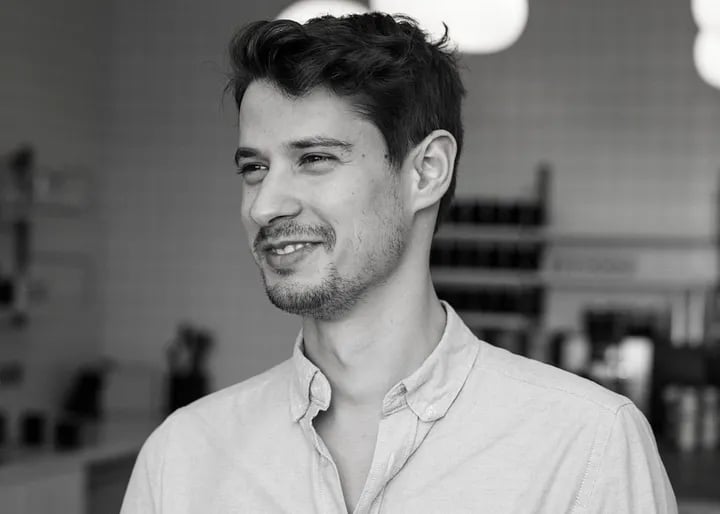Orr Vinegold, founder of Unrest
In our regular series, big cheeses remember where they first started

Hi Orr! Who are you and what do you do?
I’m Orr Vinegold, the founder of Unrest. Unrest exists to give consumers choices so that they can buy services and goods from companies and brands that do good in the world.
What was your #MyFirstMcJob?
Serving jacket potatoes at the Bon Accord shopping centre in Aberdeen, age 16.
How did you get that job?
There was a food court with 17 different kiosks, all before the chains like Prett and Leon came along, themed Italian, American, salad, potatoes, etc. The day I turned 16, I asked for a job, they said: “Will you work for £2.50 an hour”? I said: “Yes, please,” and off I went.
What did you have to do?
Serve jacket potatoes to really nice, older Scottish folks. Everyone loves a tatty in Scotland.
What was the most popular filling?
Chili and cheese!
How long did you work there for?
I’m not going to lie — I was a terrible employee. I was told that I had very bad hand coordination, I was overly generous with the toppings and I prioritised service over profit. After six months, I got a job in a pizza shop that was nearer to my house and paid £2.64.
What were the perks of the job? Free jacket potato?
One per day! Hospitality work is not glamorous. You’re on your feet eight hours a day, and you get a lot of hassle. But you can learn a lot about human nature even by serving jacket potatoes: the difference between minimum and good service and what makes people happy. So, age 16, the biggest perk was learning how to engage with people and not judge.
Did anything funny happen?
The floors would be nice and soapy after they’d been mopped at the end of the day. I was clearing the trays and absolutely caned myself, straight on my arse, potatoes all over the shop. The made us wear these hats and aprons, and of course — at 16 — all my friends would hang out in the mall., so they would come in to mock me and take photos of me in my little dress and hat.
What skills did you learnt that you still use today?
When you’re 16 and work with adults in their 30s and 40s, you learn a lot about humility and your place. As a millennial, I typically feel that I have some entitlement and so will bring some ego to the workplace. Cleaning floors for £2.50 an hour was a good reality check. It’s important to be humble and not too hubris.
Are you in contact with anyone from the jacket potato stand?
I’m afraid not. It was 18 years ago ago and I was terrible at my job, so none of them really liked me and were probably quite happy when I left because there was less chaos!
Why is alumni important personally?
When I was at university in Glasgow, I got a job ringing up the university’s alumni, asking for money, which was really interesting. There’s been a real community amongst alumni in most of organisations I’ve worked in. People from your past are an instant barometer of who you used to be. They have an image of the person you were five, 10, or 15 years ago. It’s an interesting water stamp of who you were.
Why is alumni important in general?
All start-up founders know when you build something out of nothing, you need to go to your network. The first thing I did to build my start-up was to look through absolutely everyone in my contact book. People I’d worked with or I’d been at university with ended up sitting on my board. Cultivating a large network is a good barometer to check how you are now, against how you were. People are the most emotionally and professionally important thing for the future. My business wouldn’t be where it was if I didn’t have good relations with people I’d worked with.
What would happen if you did a shift on the jacket potato stand today?
I’d have a great time, chatting and flirting away. I still wouldn’t care how much chili and cheese I gave people. I would be extra generous!
If you could go back in time, what one bit of advice would you give yourself?
I’ve always wanted to do well in life and so took the well-trodden path of university, corporate job. I wish I had the knowledge and confidence to trust my gut and let go of those imposter syndrome insecurities. We’re taught at school to do the sensible thing, to listen to our heads, not our gut feelings. In reality, I think it’s got to be a combination of the two. When I got to 30, I realised I absolutely hated my corporate job, so I’m glad I had the confidence to start over.

